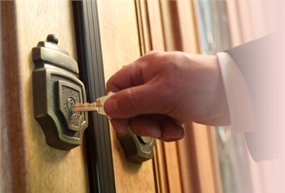Finding a sound and solid strata property
There’s good news for consumers who have hesitated to buy a condo because of uncertainty about water penetration problems. Over the past year, a tremendous amount of information has become available to help buyers find a sound, well constructed home.
"By working closely with a Realtor, buyers can make a thorough and educated investigation of a strata property before purchasing," said Real Estate Board of Greater Vancouver president Dick Coates. "REALTORS® have access to the resources and information they need to help their clients assess potential problems in strata buildings."
Before purchasing a strata property, here are some evaluation measures you can take with the assistance of your REALTOR®.
1. Review Strata Council minutes. Obtain copies of Strata Council minutes for the past year or more, along with by-laws, financial statements, Annual General Meeting minutes, and any engineering reports that may have been completed. Look for past problems, previous repairs, special assessments, and upcoming expenditures.
2. Ensure a maintenance program is in place. Reading Strata Council minutes and speaking with the property manager will help you determine whether the building has a solid preventative maintenance program in place.
3. Check contingency fund. By law, a portion of strata owners’ monthly maintenance fees must go into a "contingency fund" to pay for extraordinary repairs, such as a new roof or exterior painting. Find out whether the building has a substantial contingency fund to cover any upcoming expenses.
4. Review the Strata Property Condition Disclosure Statement. Sellers are required to complete this form, which serves as a checklist for buyers to address concerns about the property's condition. It should be carefully reviewed for any defects or potential problems.
5. Investigate the warranty program and builder background. Whether the condo is new or resale, Phoebe can find out what type of warranty the building carries, noting the limits and duration of coverage. She may also be able to help you obtain background information about the builder/developer of the project.
6. Consult with a professional home inspector. You may consider hiring an accredited home inspection professional (one who carries Errors & Omissions insurance) to inspect the condition of the suite, common areas, and the overall building structure.
**source from www.realtylink.org **
